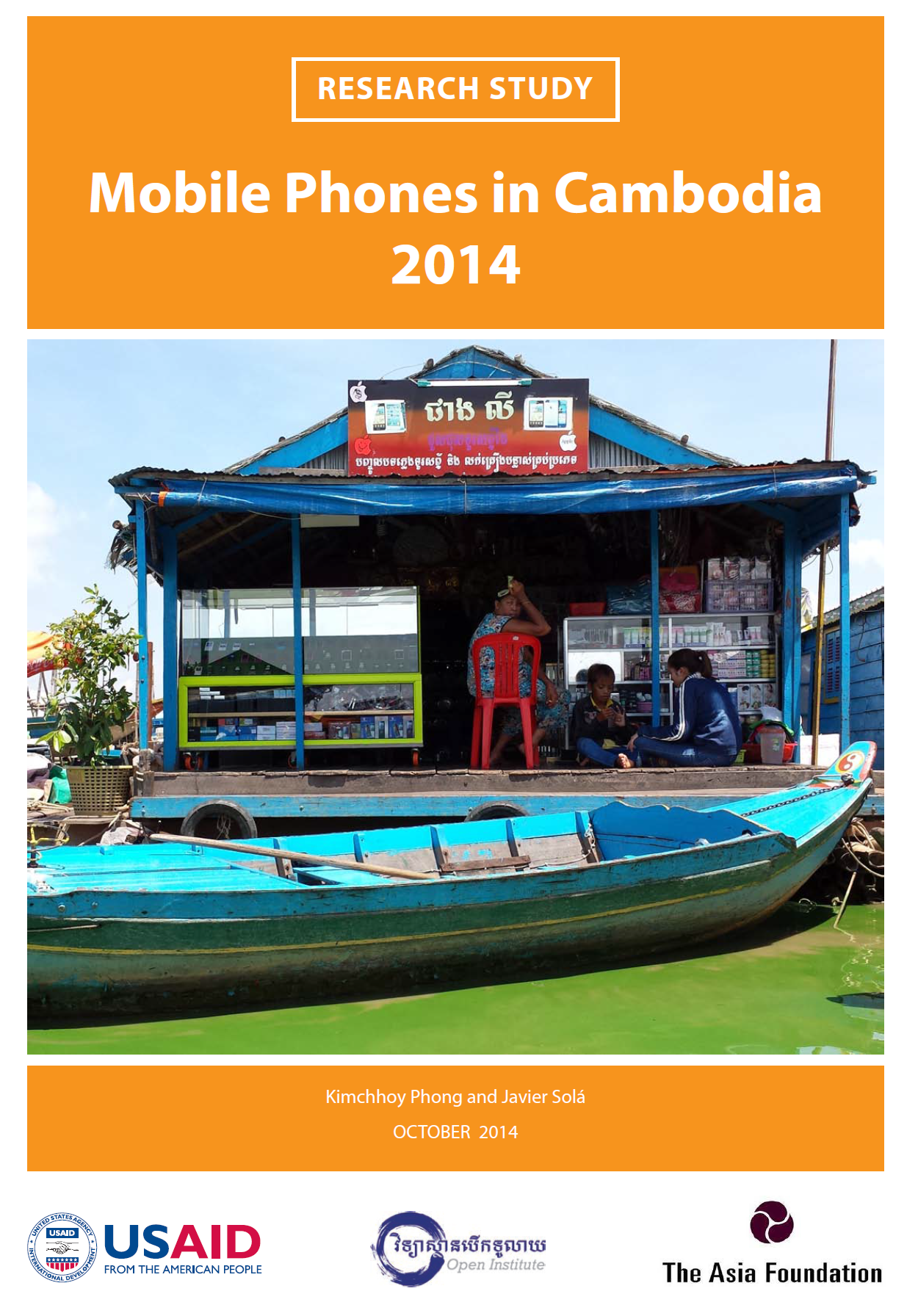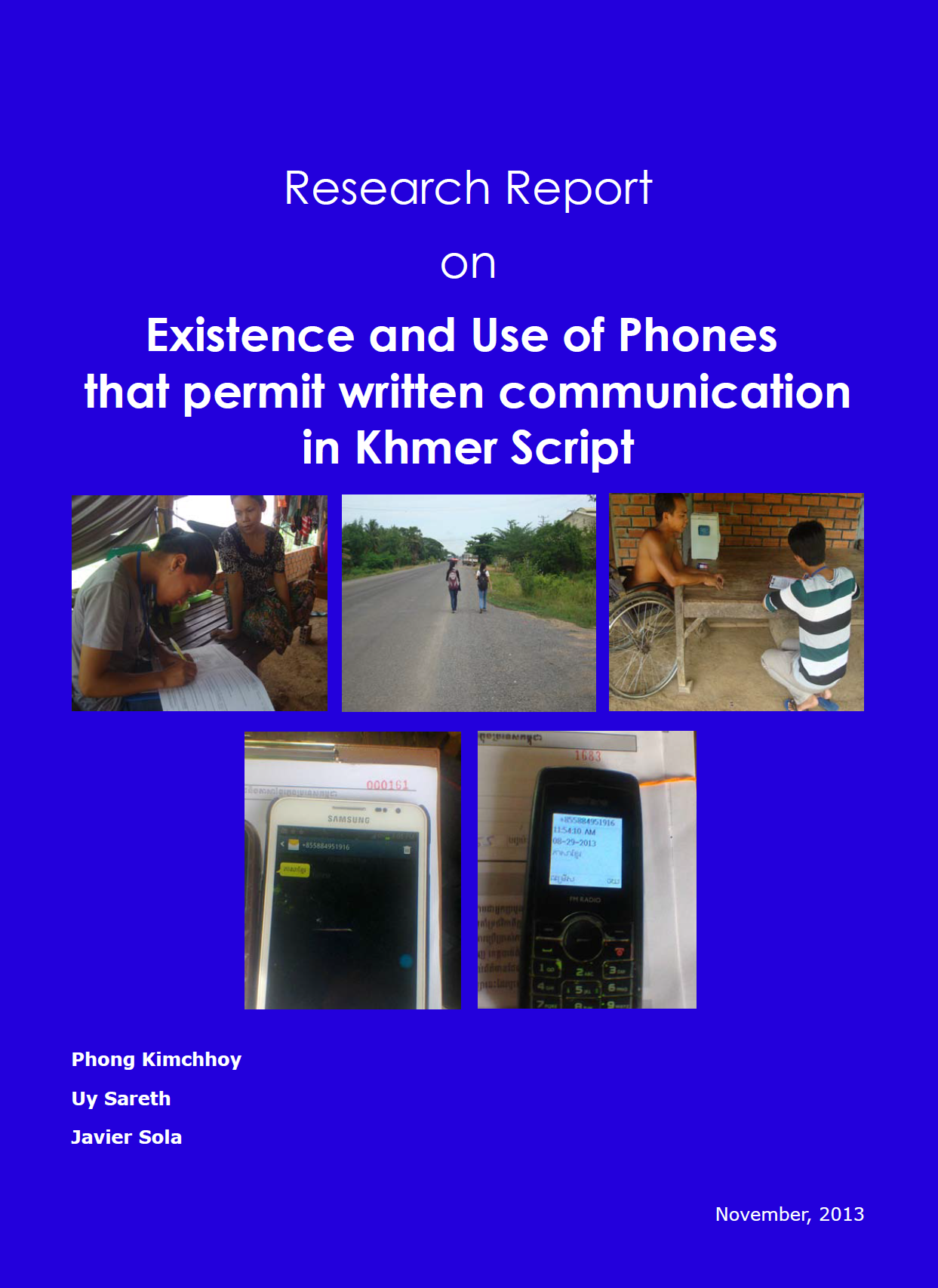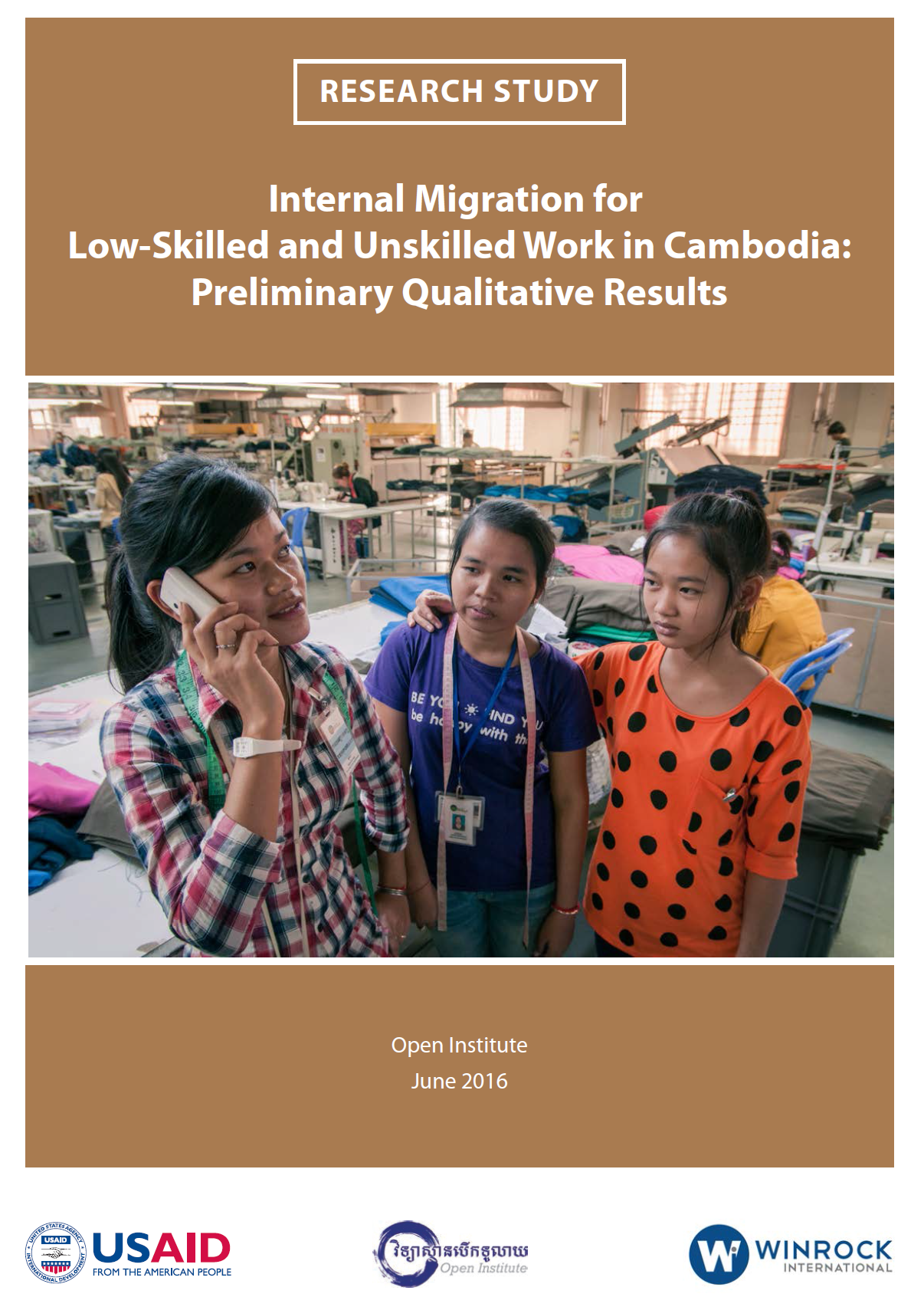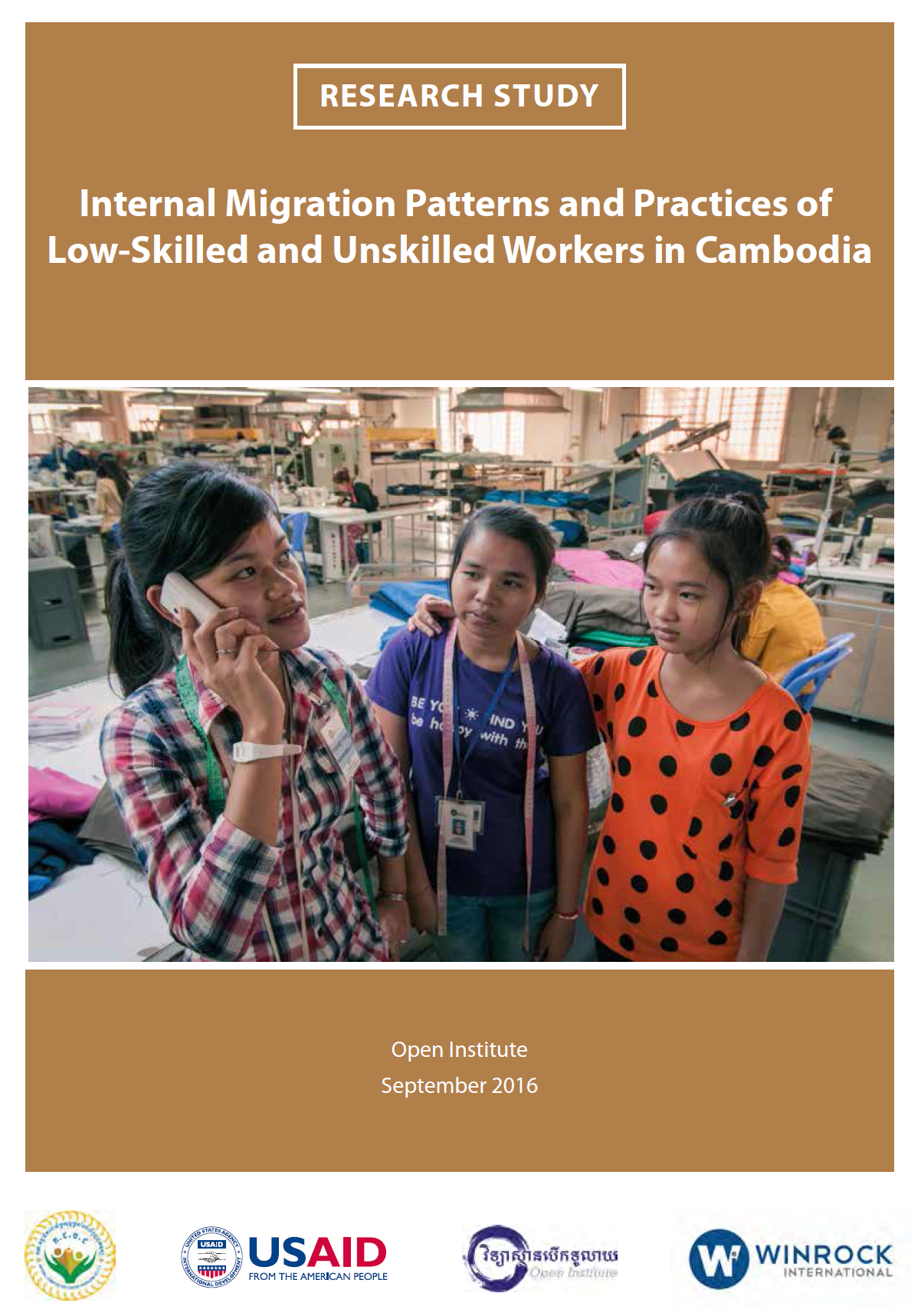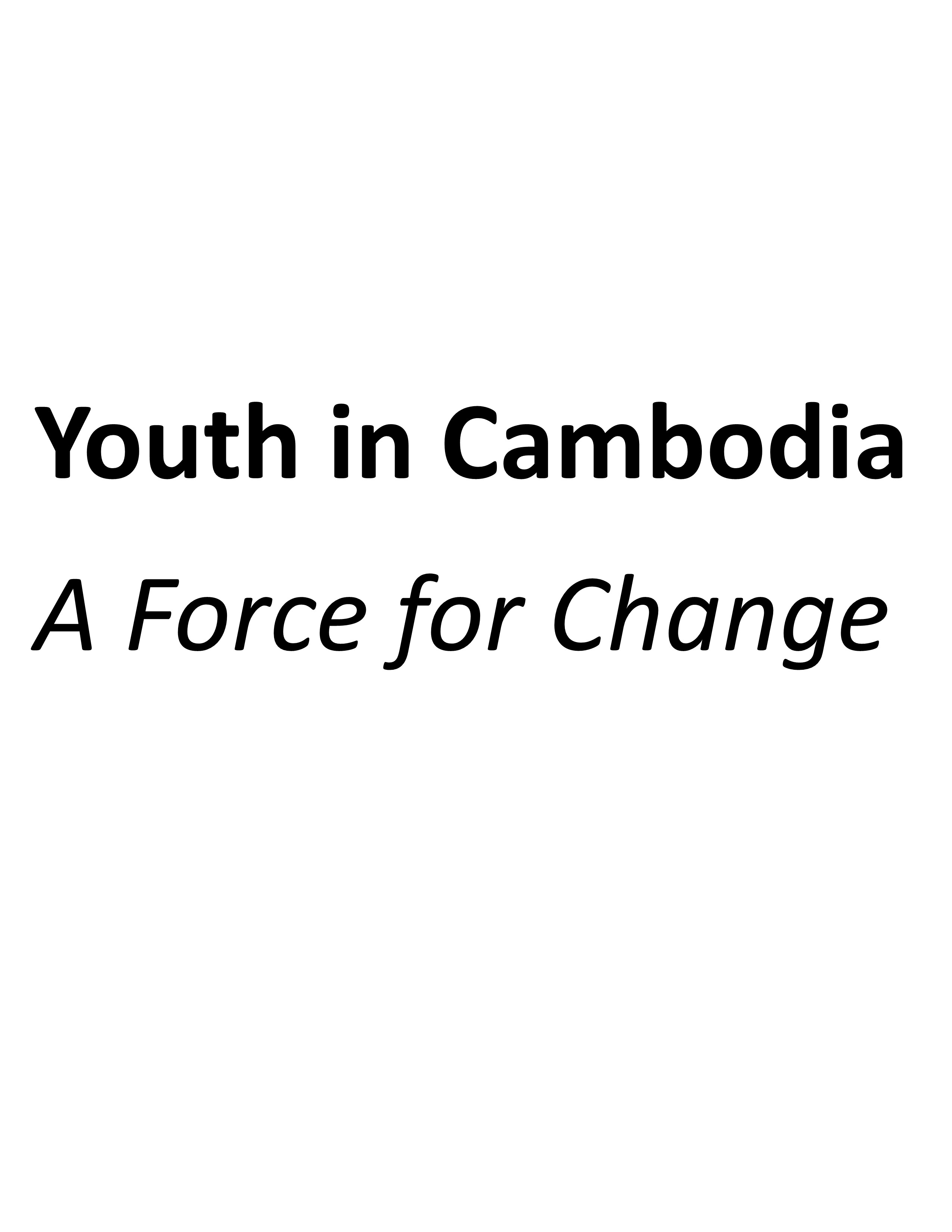Latest Entries
Mobile Phones in Cambodia 2014
Publication Year: 2014 / Sources: Open Institute (Phong Kimchhoy, Javier Sola)This study’s findings respond to the need to understand whether phones can be used as a tool for government and civil society organizations to communicate directly with citizens and beneficiaries all over Cambodia, offering them information and services in written Khmer.
Download: English | KhmerExistence and Use of Phones that permit written communication in Khmer Script
Publication Year: 2013 / Sources: Open Institute (Phong Kimchhoy, Uy Sareth, Javier Sola)This study responds to the need to understand if SMS can be used as a tool for government and civil society organizations to communicate directly with citizens and beneficiaries all over Cambodia, offering to them information and services in Khmer through mobile phones. It also attempts to understand if smart phones are or will become a key device for accessing Internet and social media in Cambodia, as these networks are quickly becoming the main source of information for youth.
Download: English | KhmerInternal Migration for Low-skilled and Unskilled Work in Cambodia: Preliminary Qualitative Results
Publication Year: June 2016 / Sources: Open InstituteIn order to propose solutions to reduce the disconnect between the national demand for unskilled and low-skilled employment and potential national workers, it is first necessary to undertake qualitative research with the following objectives:
1. To have a preliminary understanding of the structure of the main sectors that absorb national migration: garment, construction, hospitality and security
2. To have a preliminary understanding of the present hiring process of local Cambodian employers in the targeted sectors
3. To have a preliminary understanding of internal migration paths and practices
Internal Migration Patterns and Practices of Low-skilled and Unskilled Workers in Cambodia
Publication Year: Sep, 2016 / Sources: Open InstituteThe data shows that there is constant availability of work all year round in the sectors of Manufacturing, Construction, Hospitality and Security, with a peak of labor demand after the two main holidays. The main and most effective method of communication used by companies to find new employees is to communicate the job opportunities to their existing workers, who relay this information to potential workers who might be interested. HR managers are nevertheless technology-savvy and they are open to use electronic channels to find new workers.
The main conclusion is that, while a clear mechanism for accessing low-skilled and unskilled employment exists in Cambodia based on the trust relationships between potential migrants and family members and friends who are already working, this
mechanism is not sufficient to meet the demand for unskilled and low-skilled labor in the country, nor does it provide work in Cambodia to all potential migrants who would prefer to work in their own country. A significant portion of cross-border migration is most probably motivated by this disconnect.
Youth in Cambodia: A Force for Change
Publication Year: 2008 / Sources: Pact CambodiaMore than half the population of Cambodia is less than 20 years old, and youth comprise almost 20% of the total population. Unlike some countries in Southeast Asia where this percentage is expected to decline by 2030, the proportion of youth in the population is expected to peak in 2035 with average annual growth of 0.1% in 2005-2015 and 1.0% in 2025-2035.
Download: English | Khmer
